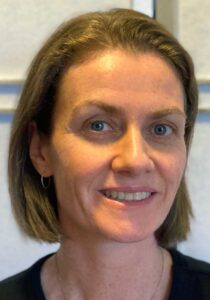TwinStrand Duplex Sequencing® technology reduces your sequencing error rates from 1-in-100 to 1-in-10 million, revealing data otherwise hidden. Using a combination of proprietary biochemistry and cloud-based informatics, the limitations of standard sequencing are overcome by independently tracking both strands of individual DNA molecules and comparing the results to eliminate errors.
Whether you are studying measurable residual disease, mutation signatures, cellular immunotherapy monitoring, or any low-level variants, you need accuracy beyond standard NGS. TwinStrand Duplex Sequencing reveals important low frequency variants that aren’t detectable by other methods. Get started with an off-the-shelf kit, or collaborate with us on a custom kit for your specific needs.
Duplex sequencing identifies genomic features that determine susceptibility to benzo(a)pyrene-induced in vivo mutations
Researchers from Health Canada recently published a paper revealing a positive correlation between Duplex Sequencing (DS) technology and the current “gold-standard” transgenic rodent (TGR) assay to assess mutagenicity. The inter-laboratory validation study indicated consistent results across laboratories (Health Canada and TwinStrand Biosciences). The findings in this study show that DS yields novel insights into the mutagenic mode of action, which may help to overcome limitations of current mutagenicity assays for future regulatory decision making.

“Mutagenicity testing is a requirement for all pharmaceuticals and chemicals used in commerce. The conventional tests used today to identify whether chemicals and drugs cause mutations are decades old and generally investigate a single gene at a time in select organisms. We believe that TwinStrand Duplex Sequencing can revolutionize mutagenicity testing by enabling the precise quantification and characterization of mutations in any gene in any organism. Our initial work, in partnership with Dr. Francesco Marchetti at Health Canada, is establishing experimental designs and analytical approaches for mutagenicity testing in human cells and rodent models.”
Carole Yauk
Professor, University of Ottawa
President of the Environmental Mutagenesis and Genomics Society

“My lab’s interactions with TwinStrand have been as much a scientific collaboration as a business relationship. We have worked closely with TwinStrand researchers to develop new panels for mutation detection, and to best leverage Duplex Sequencing and associated bioinformatic pipelines for our studies of cancer evolution in human tissues. These interactions have taken our research in new directions!”
James DeGregori
Courtenay C. and Lucy Patten Davis Endowed Chair in Lung Cancer Research
Department of Biochemistry and Molecular Genetics,
University of Colorado Anschutz Medical Campus School of Medicine
To get started, click “contact us” below to tell us about your current work and to learn how our Duplex Sequencing technology will revolutionize your research.
For Research Use Only. Not for use in diagnostic procedures.
©2024 TwinStrand Biosciences, Inc. All rights reserved. All trademarks are the property of TwinStrand Biosciences, Inc. or their respective owners. Legal Notices
Stay up to date
Danielle LeBlanc is a Biologist at Health Canada under the supervision of Dr. Francesco Marchetti. Danielle completed her undergraduate and Masters work at Carleton University in Ottawa. Danielle is currently focusing on the implementation of Duplex Sequencing for in vivo mutagenesis assessment at Health Canada.
In her spare time, she loves to cross-country ski, bake cupcakes and craft cocktails.
Dr. Francesco Marchetti is a Senior Research Scientist at Health Canada and Adjunct Research Professor at Carleton University. He chairs the Germ Cell workgroup of the Health and Environmental Science Institute’s Genetic Toxicology Technical Committee and is a member of the Organisation for the Economic Co-Operation and Development Expert Group on Genotoxicity Testing. Dr. Marchetti has authored over 125 peer-reviewed publications.
He was Editor-In-Chief of Environmental and Molecular Mutagenesis (EMM) during 2012-2016 and serves on the editorial boards of EMM and Mutagenesis. Dr. Marchetti is the current President of the Environmental Mutagenesis and Genomic Society.